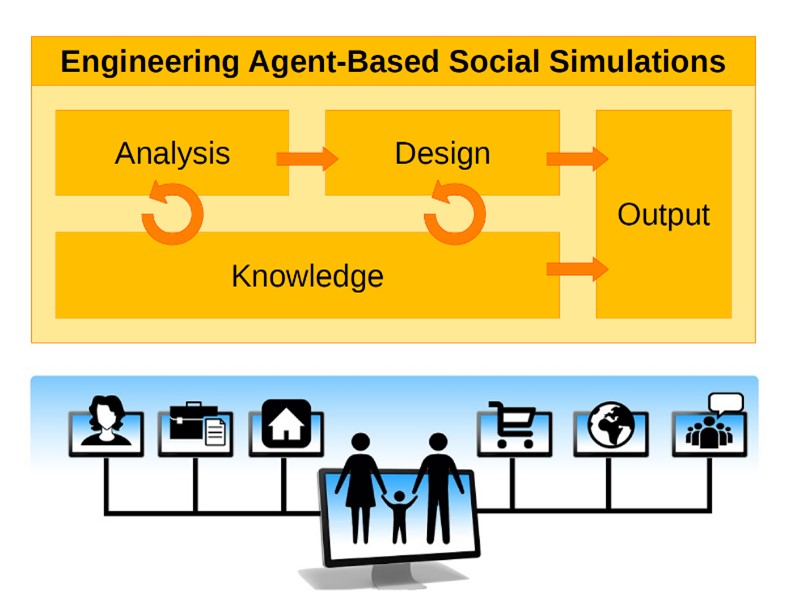The 'Engineering Agent-Based Social Simulation' (EABSS) Toolkit
Dr Peer-Olaf Siebers, School of Computer Science, Nottingham University, NG8 1BB, UK
A recent informal survey at the Social Simulation Conference (SSC23) confirmed once more the need for a structured way of addressing conceptual agent-based model development. A vital step in this direction is the EABSS toolkit. It allows all kinds of stakeholders to contribute their personal thoughts and views to the collaborative development of conceptual agent-based models in a structured way, for better understanding and simulating systems where humans and their behaviours and decisions play a key role. At its heart, the EABSS toolkit uses a well established co-creation framework, namely the EABSS framework by Siebers and Klügl (2017).

Here you can find the survival pack, which contains the material needed to successfully apply the latest version of the EABSS framework (v2.0) [zip archive].
The pack includes:
- A 71 slides presentation that introduces the concepts of agent-based modelling and contains the slides to guide the focus group through the EABSS-2 workflow
- A user guide that summarises the ideas behind the EABSS-2 framework and the steps within the EABSS-2 framework
- A cheat sheet that can be used during the focus group session instead of the presentation
- A poster that shows how the EABSS-2 framework fits into the wider context of my research
Here you can find material from my 3-Day EABSS Training Workshop, which will teach people interested in the EABSS toolkit the basic concepts of simulation modelling in general and agent-based modelling in particular, and they will gain some knowledge and practice in developing conceptual agent-based models with the help of the EABSS framework.
- Welcome [slides]
- Simulation Modelling Framework [slides]
- Agent Based Modelling and Simulation [slides]
- EABSS Framework and Toolkit Introduction [slides]
- Running Focus Groups [slides]
- UML (Unified Modelling Language) [slides]
- EABSS Example [slides] [model 1] [model 2]
- EABSS Practice (recreate and improve an existing model) [slides]
- AnyLogic + OO + Java [slides] [model]
- EABSS Practice (create your own model)
- EABSS 1.0: The Impact of Normative Comparison Amongst Colleagues [report]
- EABSS 1.0: Service Provision in the Hospital of the Future [report]
- EABSS 1.0: Reverse Engineering 'The Dynamics of General Equilibrium' (Gintis 2007) [report]
- Siebers PO and Klügl F (2017) 'What Software Engineering has to offer to Agent-Based Social Simulation'. In: Edmonds B and Meyer R (Eds). Simulating Social Complexity: A Handbook - 2e
